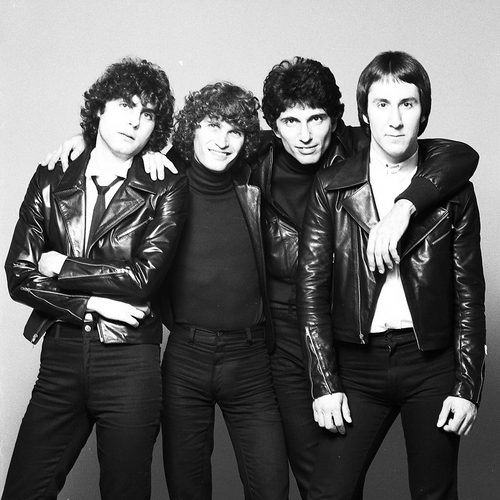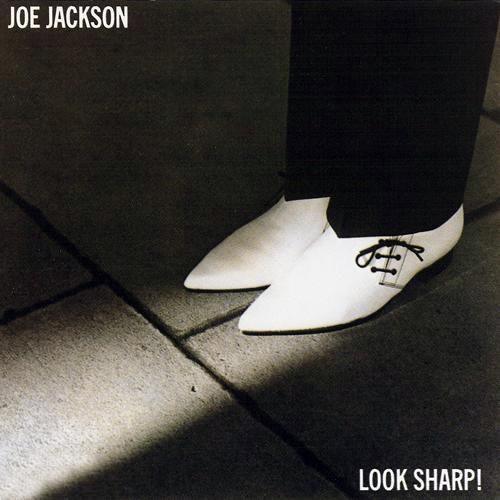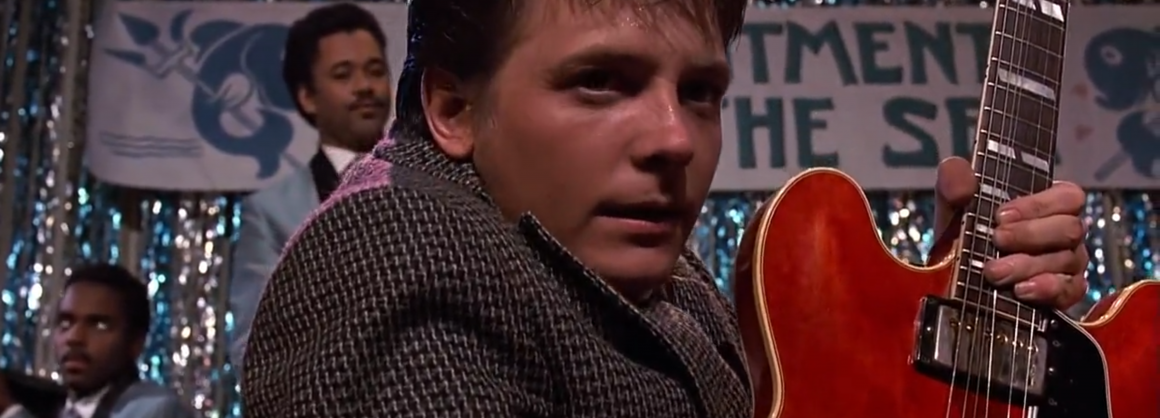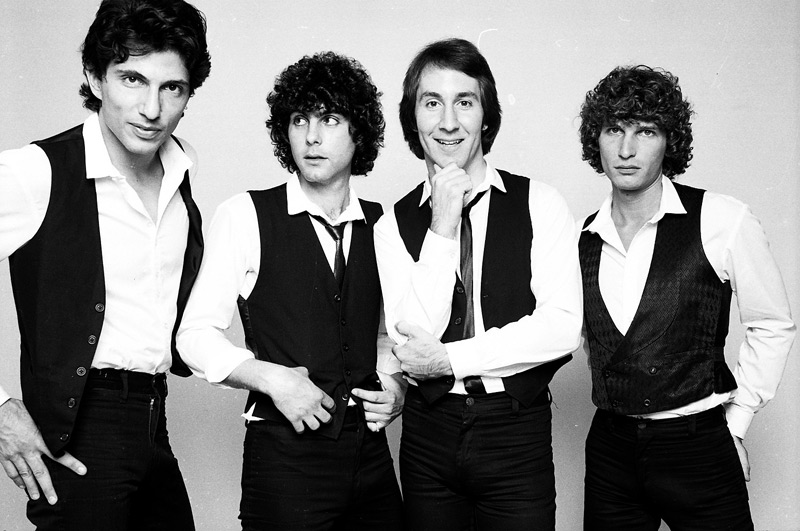
Was there ever a song as bad as ‘My Sharona’?
To several generations younger than me as well as the lunkheads that put it in the charts in the first place, this possibly sounds like madness. After all, isn’t this the punchy, repetitive earworm that – when played in your favourite post-ironic ’80s revival knees-up (and yes, I know this is a song from 1979) – never fails to get everyone out of their seats? No, to truly comprehend what I’m saying here you have to contextualise. It really IS a lousy song with but one redeeming feature.
Here beginneth the lesson…
From a British perspective, the mewlings and wailings of punk’s earliest practitioners had (as with all basic forms) opened the floodgates to more sophisticated fare in no time whatsoever. The post-punk revolution was in full flow less than a year after the summer-of-hate zenith of punk’s progenitors in 1977. For instance, Magazine’s debut album – as good a place as any to mark the passing of three chord totalitarianism – was recorded as early as March/April 1978, fleshing out the punchy aggression of their first single, ‘Shot By Both Sides’ with – gasp! – keyboards, fretless bass and even – horreur! – time changes mid-song. And while we’re at it, let’s not forget to raise the worthy-but-slightly-dull flag of Pub Rock and its role in the rise of kid brother, Punk. Elvis Costello’s My Aim Is True – a record which at no point seeks to hide its country rock origins – arrived in record shops months ahead of punk’s grand latecomer, Never Mind The Bollocks. In other words, the crucible of 1976 gave birth to far more than three chords and the truth.
What’s more, due to the predominance of an intelligent(ish) free (in the sense of not being the plaything of the record industry) rock press and a more liberal broadcasting fraternity, the UK had a much faster and wider mainstream acceptance of radicalism in song form. Stuff such as The Ramones (first played on the Alan Freeman Show on BBC Radio 1 – hardly a bastion of John Peel-type credibility), not to mention an unending forgiveness of The New York Dolls and an eagle-eyed fascination of everything underground that was springing from New York and Detroit between 1973 and 1976 was genuinely loved and, luckily for us, our night-time shows were not entirely filled with Boston and Foreigner.
And yet, from an American standpoint, NONE of this really mattered. Punk hadn’t even STARTED, according to FM radio and pop culture in the mainstream. And this is where The Knack come in. Formed in 1978, they sprang up, not in foggy olde London Town (as they undoubtedly thought of it) or even uber-cool NYC; but in Los Angeles: a town still in love with West Coast rock (in ’78, Fleetwood Mac, The Eagles and The Doobie Brothers still reigned supreme) and always with an eye on the big money. This isn’t to say that LA had no post-punk scene, or that there were no bands who didn’t kick against the traces (X! Black Flag!! The Circle Jerks!!! THE DICKIES!!!???!!!) but a close look at this list tells you what you really need to know about how music emanating from that city really operates. Post-’72 it’s mainly Schmaltz, Hair Metal, Corporate Speed Metal, Faux Punk Pop etc etc. Los Angeles may operate as a production hub, but at its heart it cares little for innovation, unless it comes with a big expenses account. Bands GO to LA to record and play, but the town itself has a dead heart. In fact, let’s face it, the only truly radical native music to the streets of LA is hip hop, and we’re talking about the end of the bloated ’70s here…
With this in mind, put yourself in the shoes of the A&R person* looking to boost his or her rankings at Capitol Records in 1979. Smaller labels such as Seymour Stein’s Sire Records were beginning to nudge up the pecking order by signing these annoyingly angular bands such as Talking Heads and The Ramones (and of course would go on to be globally dominant by signing Madonna. Urgh.). Everyone keeps blathering on about ‘New Wave’, whatever the hell that is and your bosses have told you to keep an eye out for something fresh that might get the kids who are too young to dig Little Feat into the stores. Voila! The Knack.
Ironically, lead singer and lyricist, Doug Feiger did come from Detroit, but had moved to the West Coast because, y’know… that’s where all the cool bands went to make it. Already blessed with at least one member who was a session player of renown (drummer, Bruce Gary), the band, in rather cynical fashion, latched onto the idea that they should adopt what they saw as the hip new sound. This was a typical (for the times, at least) American appropriation of contemporary British cultural mores: adopting the superficialities but ignoring the wider socio-economic underpinning. A cursory look in Rolling Stone or Creem at the time would have revealed – to bands wanting to latch on to this new sound – an alarming reversion to ’60s style values amongst many UK acts. From The Jam’s tailored mod-stylings (a truly British trend – irrefutably working-class in origin, but sun-drenched rockers in LA wouldn’t ever understand that) to Joe Jackson’s awful shoes on the cover of Get Sharp!, those boys saw skinny ties and suits and thought, reductively, ‘British Invasion! Again!!’. Well, that’s what they claimed at the time…

Yet in fact, The Knack in many ways at the time seemed, to us hip Brit kids, to be the descendants of something very much like the bandwagon-jumping Costello-isms of the aforementioned Jackson. let’s be clear: ‘Is She Really Going Out With Him?’ is the kind of whiney, boo-hoo-girls-are such-bitches stuff that populated most of EC’s first four CLASSIC albums, but without an ounce of the wit, wordplay or grasp of two decades of popular songcraft that Costello commanded. But his less eloquent plagiarisms probably got across better on the other side of the Atlantic. As a side note: I once interviewed Joe and found him to be one of the bitterest, most unpleasant men I’d ever met. Maybe he should have listened to more Grateful Dead, like Elvis…
I digress, but the point is that by the time The Knack popped up, like some instant powdered version of The Vapors, the hard-nosed, more detached approach to style adopted by post-punk’s vanguard was already ripe for assimilation by THE MAN; in this case, in the form of The Knack and other horrors, such as Huey Lewis (who’d even more ironically leant his last band, Clover, to Elvis Costello for his first album) and all of those other Yanks who made the error of mistaking drainpipe trousers with some kind of doomed return to the ’60s (which most of them still missed like crazy).
To return to the subject of this new entry in Lousy Songs: ‘My Sharona”s entry on Wikipedia shows you how disingenuous the band could be when retrospectively assessing their own (ahem) contribution to world culture. The entry is full of references (by the band) to how they were emulating Smokey Robinson, The Who or even Spencer Davis. ie: classic Brit invasion bands and Motown, adding a posthumous air of classicism where it’s not in any way due. No, there was a vague sense that dressing in a suit equated with being in some way radically new (yet old). In reality: this was really a cut-price rewrite of Elvis Costello’s ‘Pump It Up’, shorn of aggression and, instead, fuelled by a real-life infatuation with underage sex. As the above Wikipedia entry states: ‘Fieger noted that the song was written from the perspective of a 14-year-old boy.’ as though this were some excuse for the inexcusably cringeworthy lyrics that the song contained:
‘Never gonna stop, give it up, such a dirty mind
I always get it up, for the touch of the younger kind’
Yes, ‘My Sharona”s subject matter was the then-17-year-old obsession of 25 year-old Doug Fieger. Maybe not such a massive mis-step, especially in those pre-PC days of yore, and yet when it’s combined with the LOOK of Doug and his cohorts it all starts to become a tad, well… creepy. But this was the States in the late ’70s. Even The Eagles – those lords of West Coast everything-all-the-time-ness were well known for their taste in, erm… younger ladies. But as I say, when you consider the sheer unpleasantness of seeing Doug (one of those guys who looked 40 when he was 25) sing those unsubtle words of lust and you can see why the American public soon rejected the band for exactly what they were – cynical chancers with nary an original idea amongst them, and a lead singer who found jailbait a suitable subject. Unfortunately the “Knuke the Knack” critical backlash which began the following year also rather wrongheadedly focussed on the fact that they were in some weird way a Beatles rip-off band, based, I presume, on their love of ties and horrible haircuts. In Britain it was merely a case of Americans getting the wrong end of the new wave stick, again. What’s more, it was produced by none other than Mike Chapman: a man who had previous form turning glam turkeys, like Mud and The Sweet into golden egg-laying hitsters. Thanks again, Mike.
But let’s return to the song. It was a MASSIVE hit; becoming a number one in five countries (for six weeks in the US) and clogging up the UK top ten playlists for fucking ever, seemingly. Catchy as hell due to the dumber-than-thou thumpa-thumpa drum pattern and stutteringly repetitive chorus, at the time I recall just hating every second of it every time it was played. But one thing makes it noteworthy here: the guitar solo, naturally. Oddly at the time I never noticed this, but I suspect that it was this as well that gave the game away and alerted me to how FAUX-New Wave it really was.
Let’s be clear here; this is no 10 second burst of glory, but ONE MINUTE AND TWENTY-FIVE SECONDS of red-hot lead. In other words, for those keeping score at the back, that means that 29% of ‘My Sharona’ is composed of pure guitar solo. This proves irrefutably that nearly 70% of the song is terrible while the other 30% proves that it was co-written by none other than THE GUITARIST.
To be honest at around the one minute and 23 second mark the guitar fills by this very same guitarist (Berton Averre) are a huge signpost that this is, in no way, a new wave record. Far too accomplished and far too filigree for anything approaching ‘cutting edge’, his technique nonetheless is impressive, even for a 26-year-old pretending to be way younger. But by the time the solo arrives at 2’45” (presaged by some sub-Townsend-isms giving him room to warm up his fingers) he really seals the deal. Sure, there’s a fair amount of cliched triplets in there, and none of it is truly envelope-pushing stuff, but his right hand technique is, to this day, scarily fast and the downward scale pattern at the 4’02 mark where he tumbles towards the final string bends always takes my breath away. To maintain such taste and precision for this long in any solo is impressive; to do it all in the space of a five minute pop hit (and still have a hit) is astounding. I suspect that there’s an edit at the 3’11” point where he flubbed it and he had to be dropped in, but as you can see from this live version – he really could wailwhen put on the spot. A truly GREAT solo.
In a way, I’m glad I didn’t appreciate this at the time because then I possibly would have started liking the bloody song. And it’s lousy. And now it’s doubly lousy because I’m positive that every single one of those people that went out and bought 10 million copies (in the USA alone) did so because they liked the song, not the solo. Talk about wasted beauty…
In conclusion: the improbably-named Berton went on to be a big cheese in musicals, Doug Fieger (after quitting the band in ’81) died in 2010, and the original Sharona: Sharona Alperin, ditched Fieger as a boyfriend and dined out on the questionable fame until becoming an estate agent and co-opting the song’s title for her website. The Knack, despite a couple of minor follow-ups were, thus, doomed to the one-hit graveyard and to be the soundtrack to some awful dance moves by some awful white folks. But the solo? My-ay-ay-ay-ay WOO!
Listen to ‘My Sharona’ here.
*Incidentally: this person was named Bruce Ravid as this hagiography-masked-as-fact-type article reveals. Apparently he was: “sold the first time I saw them”. Frankly, claiming that a band, who played their first gig in June 1978 and by June ’79 had a worldwide number one, ‘were no overnight-success story’ is pushing the truth a bit. And what exactly does the phrase ‘genuine rock ‘n’ roll band’ even mean in that first sentence?

